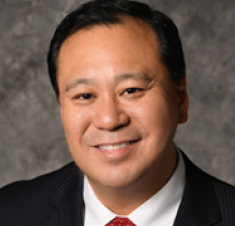AAPI Heritage Month: Recognizing Contributions of AAPI Healthcare Workers
Working in healthcare means more than just providing medical treatments — it also means working with a diverse team of healthcare professionals and providing care to a diverse patient population. With that comes the importance of recognizing the significant role people of varying racial and ethnic backgrounds play in healthcare. In recognition of Asian American and Pacific Islander (AAPI) Heritage Month, this blog post will highlight some general contributions AAPI healthcare professionals have made toward the health and well-being of our communities across the nation and their importance in the current and future U.S. healthcare landscape.
Cultural Competency and Language Skills
One of the primary advantages of having AAPI healthcare workers in the U.S. is their understanding and appreciation of diverse cultures and languages. They may be more sensitive to the unique needs, beliefs, and values that influence health-seeking behaviors. Moreover, AAPI healthcare workers often possess bilingual or multilingual capabilities, which bridge the language gap between patients, their families, and healthcare providers. This establishes more trust, enhances communication, and eliminates potential misunderstandings, ultimately leading to better care of the patient. Empathy is an integral part of medicine; for patients to have access to a provider with a similar cultural or linguistic background is meaningful.
Representation and Role Models
Representation matters to people. AAPI patients often feel a sense of security, relief, and even pride when they see someone who looks like them in a healthcare setting. Those patient-provider connections are valuable in creating a sense of trust in the delivery of care. Moreover, AAPI healthcare professionals serve as role models and can inspire individuals to pursue careers in the medical field. And beyond that, seeing AAPI people in leadership roles can inspire others to aim higher because they know it can be achieved.
Contributions to Research and Innovation
Many AAPI healthcare professionals are at the forefront of medical research, clinical trials, and innovative healthcare practices and policies. Their research and innovation help provide culturally relevant information, healthcare programs, and educational materials. These contributions help address the specific needs of AAPI populations, ultimately reducing health disparities and improving healthcare access and quality.
In conclusion, the contributions of AAPI healthcare professionals in the United States are important and significant. In the future, with nearly 25% of medical students in the U.S. identifying as APPI, their significance will continue to grow. It will lead to more opportunities to help in achieving health equity, eliminating disparities, and fostering a more inclusive and patient-centered healthcare environment for millions of people.






Leave a commentOrder by
Newest on top Oldest on top